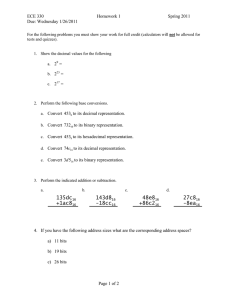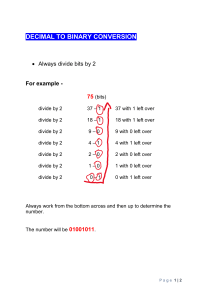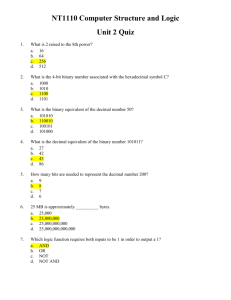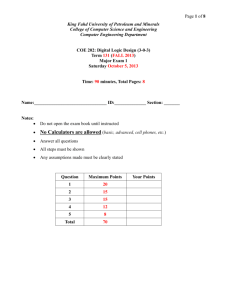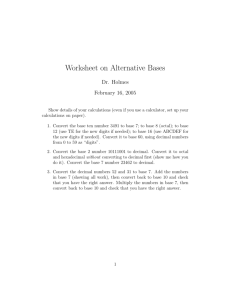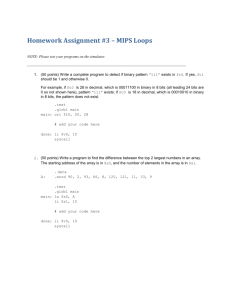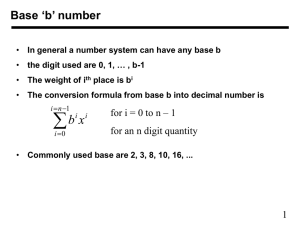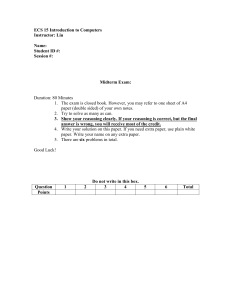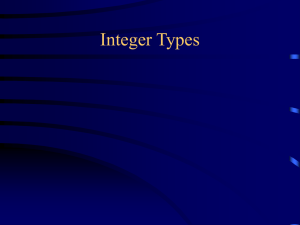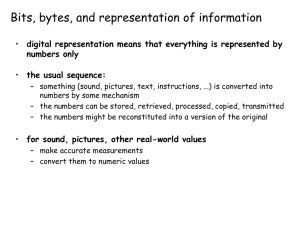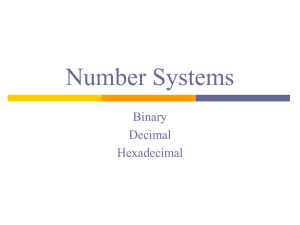ECE 330 Homework 1 Fall 2010 Due: Monday 8/30/10
advertisement
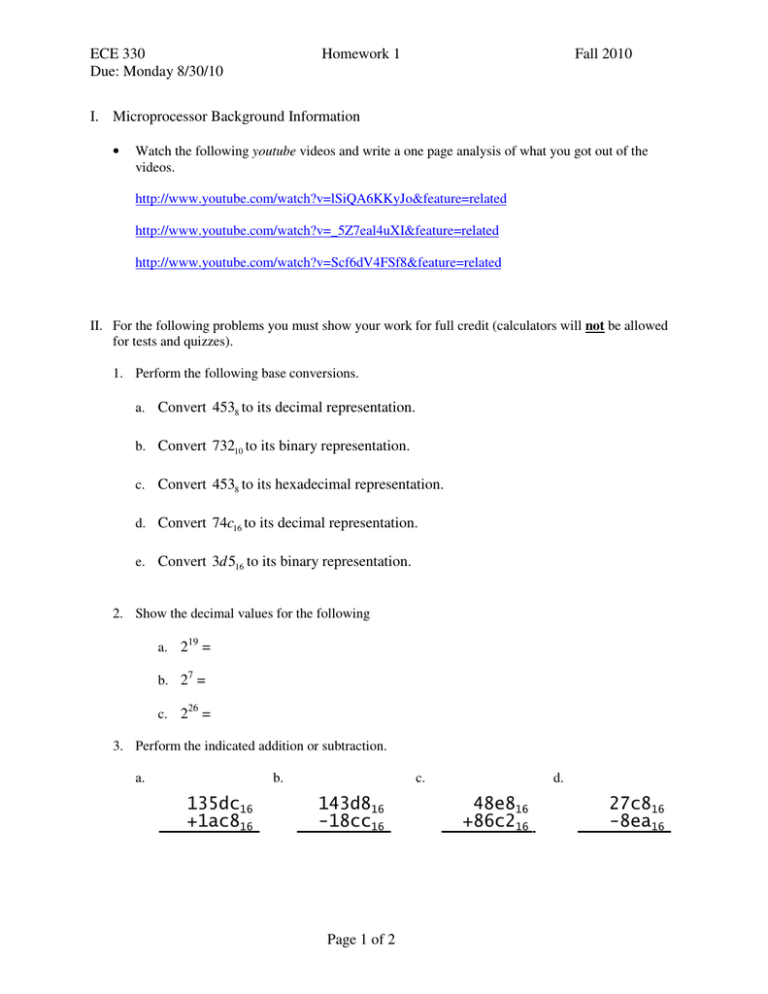
ECE 330 Due: Monday 8/30/10 Homework 1 Fall 2010 I. Microprocessor Background Information • Watch the following youtube videos and write a one page analysis of what you got out of the videos. http://www.youtube.com/watch?v=lSiQA6KKyJo&feature=related http://www.youtube.com/watch?v=_5Z7eal4uXI&feature=related http://www.youtube.com/watch?v=Scf6dV4FSf8&feature=related II. For the following problems you must show your work for full credit (calculators will not be allowed for tests and quizzes). 1. Perform the following base conversions. a. Convert 4538 to its decimal representation. b. Convert 73210 to its binary representation. c. Convert 4538 to its hexadecimal representation. d. Convert 74c16 to its decimal representation. e. Convert 3d 516 to its binary representation. 2. Show the decimal values for the following a. 219 = b. 27 = c. 226 = 3. Perform the indicated addition or subtraction. a. b. 135dc16 +1ac816 c. 143d816 -18cc16 Page 1 of 2 d. 48e816 +86c216 27c816 -8ea16 ECE 330 Due: Monday 8/30/10 Homework 1 Fall 2010 4. If you have the following address sizes what are the corresponding address spaces? a) 13 bits b) 17 bits c) 23 bits 5. If you have the following memory sizes, what should the address size be? a) 56k bytes b) 32k bytes of memory plus a few memory mapped devices (assume that each device uses 16 bytes of address space). 6. How many entities can be addressed by the following address schemes? a. 5 decimal digits b. 3 hexadecimal digits c. 7 octal digits d. 9 binary digits 7. What is the unit of addressability for the Nios II processor? 8. How much memory can the Nios II processor have? 9. How many bits are in a byte? 10. Name three types of memory found on the DE2 board used for the lab. Page 2 of 2
